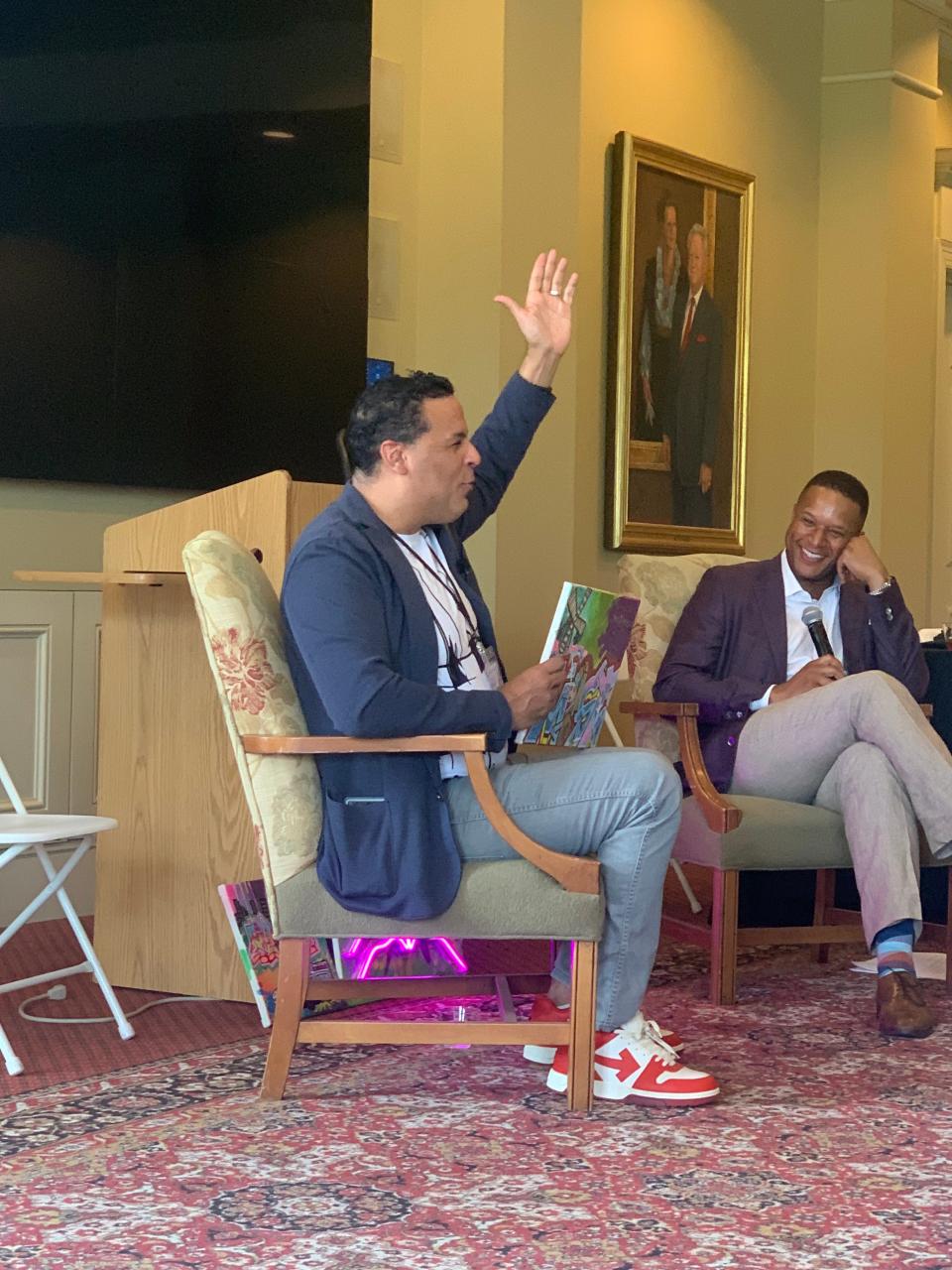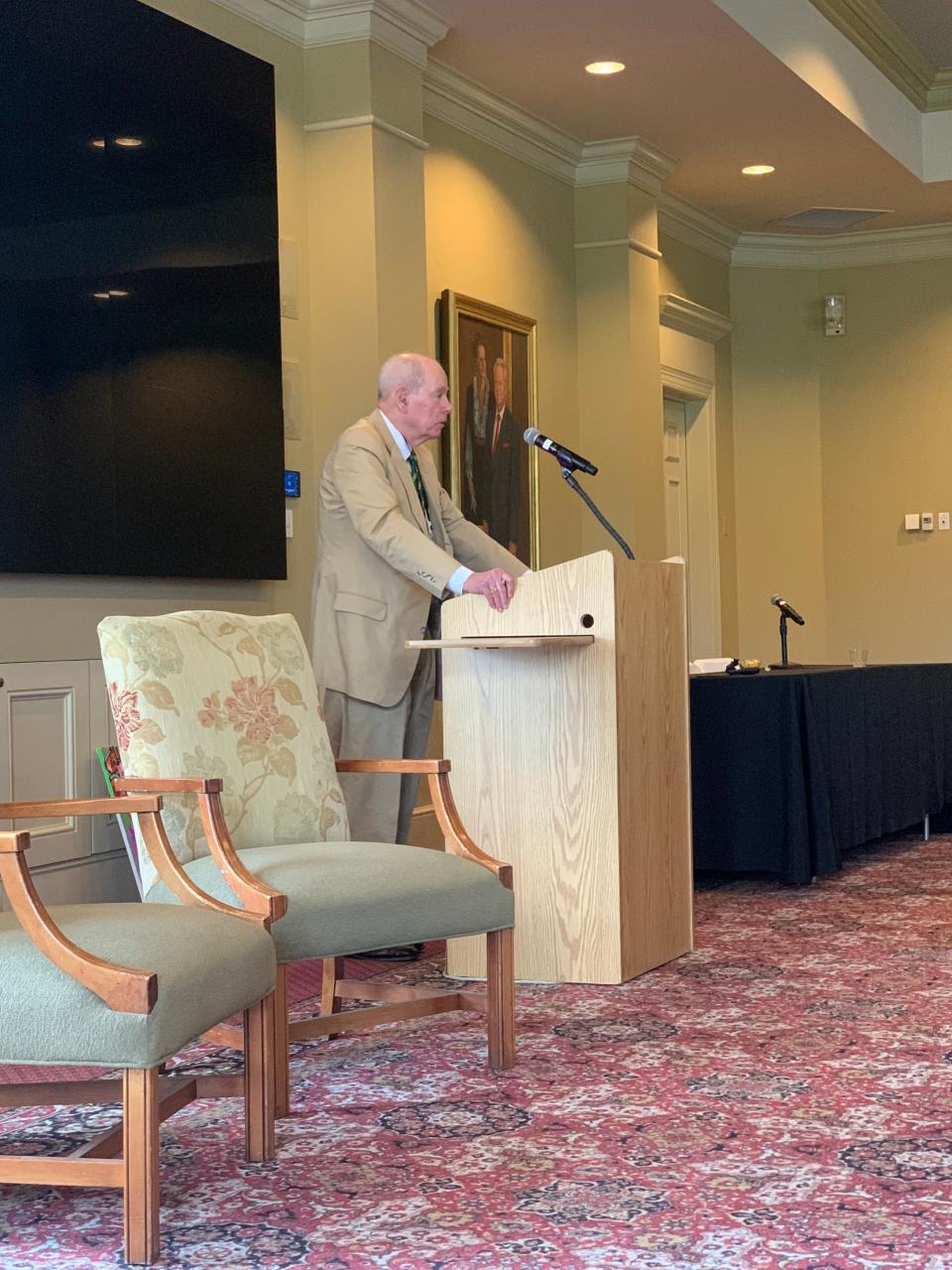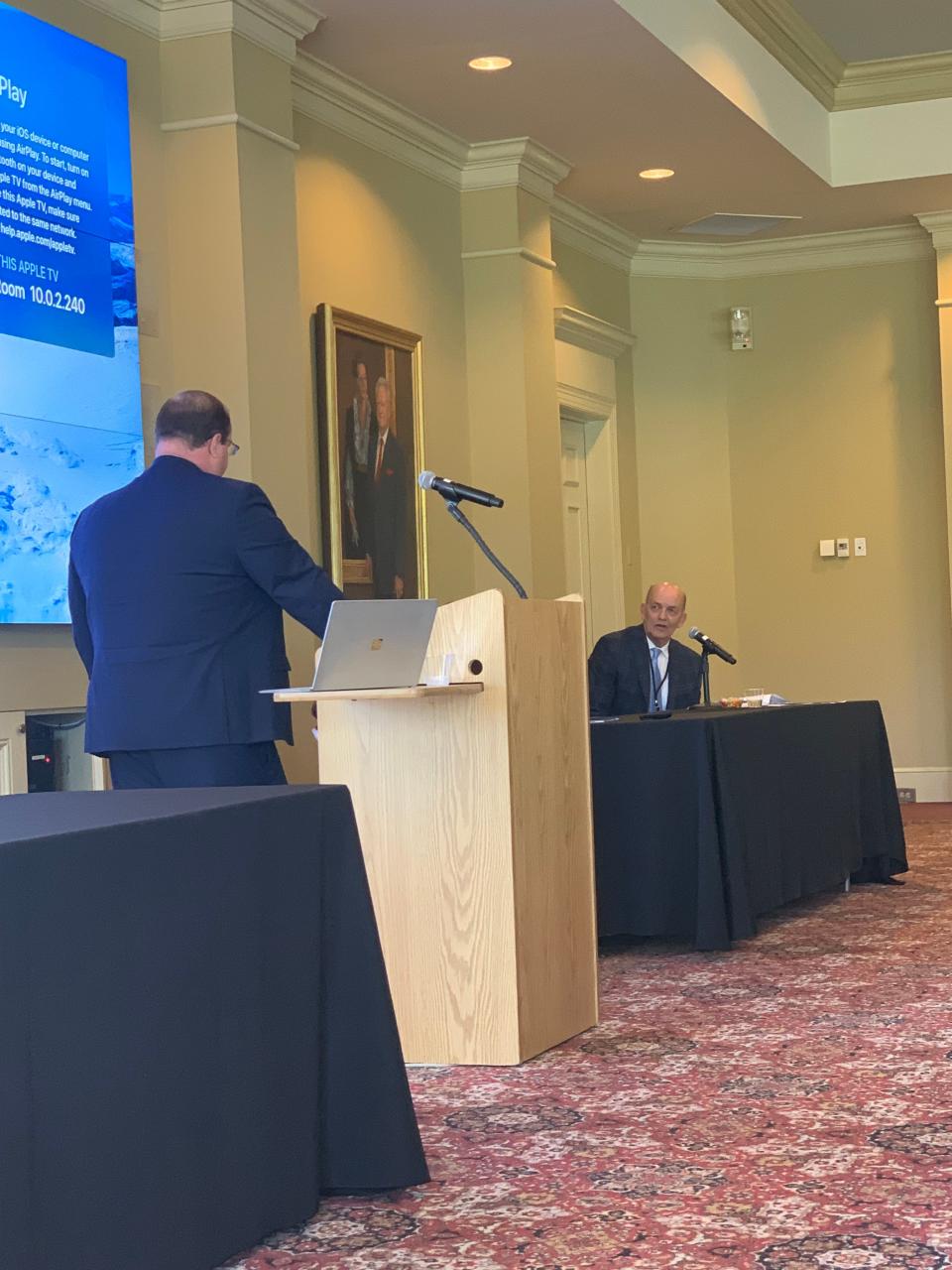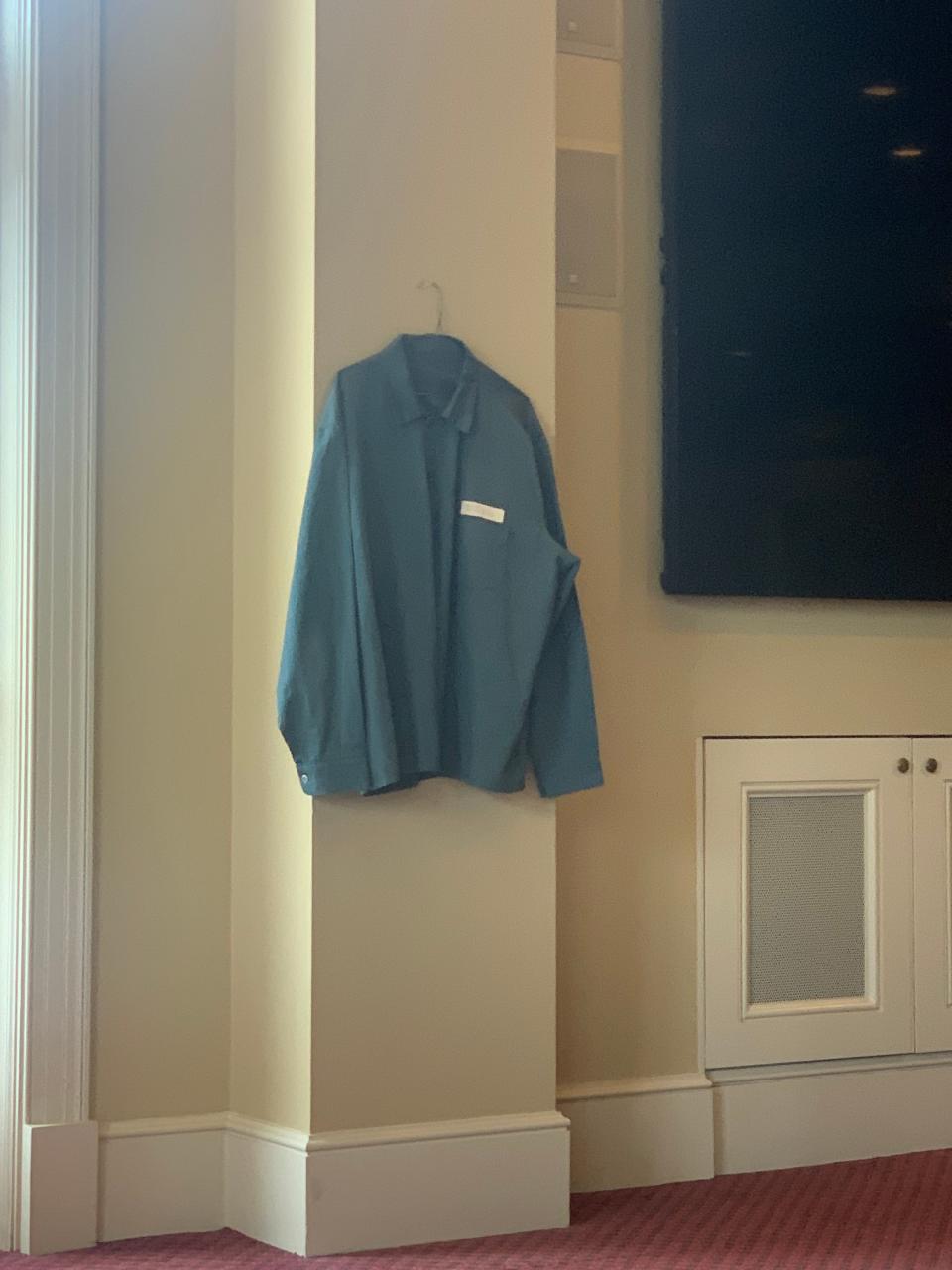Expert: South Carolina likely has hundreds of wrongfully convicted people behind bars
In an Upstate region that leads South Carolina in prison incarcerations, some in the legal field are trying to shine a light on exoneration efforts in order to prevent wrongful convictions.
Greenville and Spartanburg counties each constitute about 10% of the South Carolina Department of Corrections population, according to data from the department for the 2023 fiscal year. The two counties lead the state, respectively, in most people committed to the penal system; Spartanburg County sent more than Greenville County the year prior, incarcerating the most people as the fifth-largest county in the state.
However, exonerees, defense attorneys and prosecutors gathered recently in Spartanburg to discuss wrongful convictions and exoneration efforts as part of the first-ever South Carolina Innocence and Justice conference at Wofford College.
Current University of South Carolina School of Law student Gracie Hicks co-founded the South Carolina Innocence Initiative at Wofford during her time on campus as an undergrad. Hicks helped coordinate the May 3 event along with another USC law student, Levi Cromer, and both are hoping to expand innocence efforts on Wofford and USC's campuses.
In one discussion, Chris Mumma, executive director of the North Carolina Center on Actual Innocence, said that between 160 and 800 of those incarcerated in South Carolina are likely the victims of wrongful conviction.
The event featured representatives from the Innocence Project, the U.S. Attorney’s Office and a retired South Carolina Supreme Court chief justice. Many shared their personal involvement in wrongful conviction cases.
Additionally, North Carolina resident Fernando Bermudez, who was falsely convicted of murder as a 21-year-old living in New York City, told his story during a sit-down interview with Today Show host and Wofford graduate Craig Melvin. Bermudez served almost 18 years of his 23-year sentence before his conviction was overturned and he was released in 2009.
Dawn McQuiston, professor of psychology and director of the SC Innocence Initiative at Wofford, told the Herald-Journal that the conference was modeled after the Innocence Network’s national conference held annually.
In one of the most riveting accounts, Bermudez recalled the night he was detained and questioned by NYPD officers, and his eventual charge and false conviction. Bermudez described the experience as a surreal event that ended in his "worst nightmare.”
“I thought I just had nothing to hide, and the truth will prevail. It just got worse and stranger,” Bermudez said.
After a 16-year-old was shot and killed outside a NYC nightclub, Bermudez was falsely identified as the perpetrator. Although a state’s witness had identified his friend who had committed the shooting, police still presented the witness a photo lineup with Bermudez in it, and the witness identified Bermudez.

When Bermudez was placed in a physical lineup, he was told to sit in a chair, masking the fact that he was taller than the description of the suspect.
Bermudez pleaded not guilty when he was first charged and rejected a 2008 offer of release with time served credit. But under that agreement, he would still have had a manslaughter conviction on his record. Bermudez said he wanted his name cleared and was ultimately released in November 2009.
He is thought to be the first Latin-American man to be exonerated in New York on “actual innocence” grounds, according to the Innocence Project.
Hundreds of wrongful convictions possible in South Carolina
Last year, Greenville and Spartanburg counties combined for a little under one-fifth of the state prison population, according to SCDC data, and Spartanburg has recently outpaced its larger neighbor in incarcerating individuals.
While Greenville County, the most populous county in the state, according to census data, with 558,000 residents, sent 9.9% of the SCDC inmates admitted in 2023, the much smaller Spartanburg County trailed by just one-tenth of a percentage point.
With 200,000 fewer residents than Greenville, Spartanburg County is the fifth most populous county in the state. In 2022, Spartanburg County outpaced Greenville, incarcerating more people than any other county in the state.
Mumma said that estimates of those falsely convicted range from at least 1% to 5% of the incarcerated population. In a state with 16,000 people in correctional facilities, Mumma said that at minimum 160 – and potentially up to 800 – South Carolinians are behind bars for a crime they did not commit.
“That doesn't count the people who have already gotten out of prison who were innocent. If there was any other issue in the state where 100 people were impacted, there would be an outcry,” Mumma said.
More: Building from the ground up: Formerly incarcerated men thrive in new woodshop after fire
York County was the only other county sending more than 6% of the state's admitted inmates in 2023. It trailed Greenville by one full percentage point and is the seventh-biggest county in the state.
North Carolina Center on Actual Innocence also handles cases in South Carolina, Mumma said.
Pickens County sits with Greenville County in the 13th judicial circuit, and Cherokee County accompanies Spartanburg in the 7th circuit. The two circuits comprise 24% of the state's prison population as of June 2023.
Former chief justice offers cautionary tale
Several prominent legal figures recounted cases in which they were involved and later questioned guilty judgments.
In terms of imprisonment rate by state, South Carolina sits almost squarely in the middle, at 24th place with 302 people incarcerated per every 100,000 residents, according to data from The Sentencing Project. South Carolina is also one of 21 states with the death penalty, according to the Death Penalty Information Center. Although no one has been executed since 2011, the state Supreme Court is currently deliberating over the future of capital punishment in the Palmetto state.
More: Attorneys for Richard Moore levy human rights group in push for relief from SC death row

Costa Pleicones, former chief justice of the state Supreme Court, was among those experts offering cautionary tales about wrongful convictions.
In a lecture, Pleicones shared the capital case of Richard Charles Johnson. The state Supreme Court found Johnson guilty in 1991 of two counts of murder. Johnson’s final appeal for a new trial was denied in 2001 and he was executed in 2002. Pleicones dissented in the court’s denial.
“I'll never know for sure whether he was actually innocent or not, but I believe that he was,” Pleicones told conference attendees. “I believe that the body of evidence tells me that Johnson was not the perpetrator of either of the murders of which he was ultimately convicted, one by his own guilty plea, oddly enough. We all recognize that sometimes people do plead guilty to things that they never did.”
Pleicones said a sworn affidavit from a woman present on the night of the double murder did not sway the Supreme Court. She admitted to one of the murders and implicated a co-defendant in the other. Despite dissenting in the decision, Pleicones said he must live with his part in affirming a number of death penalty cases.

Former Richland County assistant solicitor Jim Morton, now a private defense attorney, realized years after his aggressive prosecution of a man suspected of four 1989 Columbia murders that he had likely put the wrong man behind bars. The man, Doug O’Neal, was convicted on one count and served 25 years in prison. He was ultimately pardoned by the state in 2020.
After reviewing the case materials in 2014, Morton decided there was no corroborating evidence of O’Neal’s guilt and the key witness was unreliable. Morton told O'Neal's parole board that he had prosecuted an innocent man.
Morton admitted he was blinded by a desire to win the case and a trust in law enforcement. He said he later befriended O’Neal, who eventually said he did not harbor ill will toward Morton.
Life continues for the exonerated
Bermudez, the man exonerated in New York, recognized another exoneree, Leonard Mack, who attended the conference but did not speak. Like Bermudez, Mack was convicted in New York but told the Herald-Journal he currently resides in the Columbia area. Mack served six and one-half years in prison and had his name cleared last year, nearly 50 years after his March 1976 conviction.

Bermudez is completing a book and creates art. One piece he brought to the conference depicted the night of his arrest.
“It’s a story that makes you angry," Melvin said about Bermudez’s story. "It made me sad, but towards the end, it also made me somewhat feel hope.”
Chalmers Rogland covers public safety for the Spartanburg Herald-Journal, Greenville News and USA Today Network. Reach him via email at crogland@gannett.com.
This article originally appeared on Herald-Journal: Wrongful convictions in South Carolina could be in the hundreds

